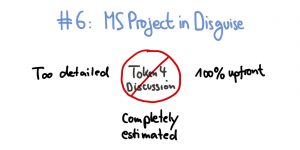
The way the companies buy has substantially changed. Internal decision-making and funding approvals have become far more complex, bringing new challenges to sales organizations looking to grow their key accounts. Why is this happening and how do you adapt?
The Reality of Buyer Decision Making Today
In the past, salespeople would look for buyers with budget, authority, need, and timeline for purchasing – The traditional BANT model. In the 90’s, relationships grew more complex. Spending authority was taken away from certain buyers as it moved up the organization, meaning salespeople typically had to work with sponsors to gain access to a buyer who could actually approve a purchase.
The biggest change we see today is that more buyers are involved in the decision making process. Today’s companies are comprised of many different departments and groups, each with their own budgets. Decisions about complex problems are made with agreement networks that involve numerous people, and more effort is required to close a deal. This is partly because buying decisions involve processes and workflows that tend to cross department boundaries.
We also see that high-level executives (C-level) are more frequently involved in almost all expenditure decisions. CEO’s and CFO’s are reviewing even the smallest expenditures and declining deals of all sizes at the eleventh hour. These extra levels of approval and oversight going up the chain are slowing down deals and elevating the risk for both salespeople and buyers.
The complexity of buyer decision-making may have always been a challenge, but the involvement of more and more people in the decision making process is becoming the new norm and less of the exception. Salespeople must now be prepared to navigate complex agreement networks in order to execute on strategies and grow key accounts, which no longer involves a simple interaction with procurement buyers.
Adapting to the New Reality
To help your reps adapt to the growing complexity of your customers’ decision-making processes, they need help embracing this new reality. It’s starts by understanding the altitude of the buyers involved in decisions and the strategy you are pursuing. The higher your reps can engage in an account, the better they can accurately decide if an account is worth pursuing.
Your salespeople also need to examine the common roles of the buyers involved in purchasing your specific type of product or service, not only their altitudes but also their functions (Marketing, IT, Security, etc.). How does your solution specifically help or impact their roles? Salespeople must be able to tune their communications to the specific roles within the agreement network. It helps to have your reps look at their current customers to identify the motivations, decision drivers, and well as the altitude levels and roles of the people who ultimately approved previous purchases.
When account planning, your sales team needs to consider all of the buyers that should be contacted and engaged, then determine how these relationships need to evolve in order to grow key accounts. The key is to make it a team effort. By collaborating with their peers to leverage additional networks, your reps can gain the right level of access needed to effectively navigate complex agreement networks. This type of collaboration can bring mutual gain and consistency of execution, while building credibility in the eyes of your buyers.
Growing key accounts involves a great deal of insight, information, effort, and planning. Equip your reps to navigate and engage the multiple buyers who contribute not only to the buying decisions but also to the funding of purchases. Ultimately, reps need better information and support as well as planning tools/processes that bring discipline, objectivity and accuracy to growing key accounts. Visual maps of buyer relationships, influencers, stakeholders, etc. can help the make sense of all this complexity while fostering collaboration. The good news: All of this is available and possible. It’s up to you to make it happen.
Business & Finance Articles on Business 2 Community
(323)
Report Post






